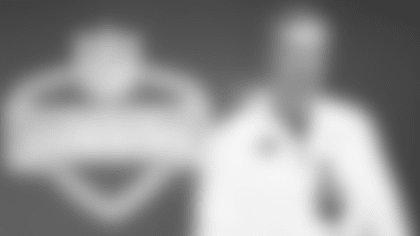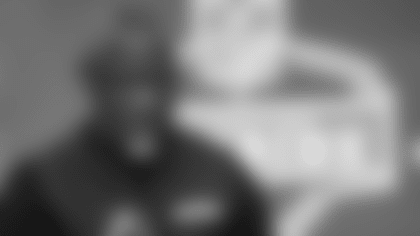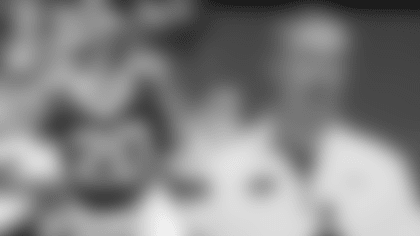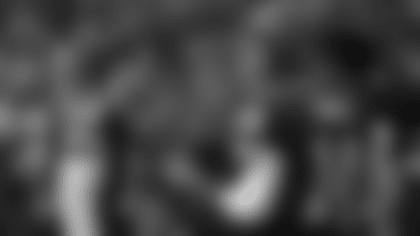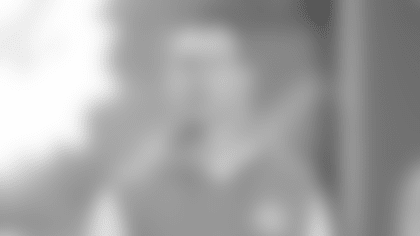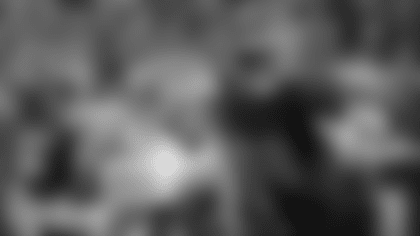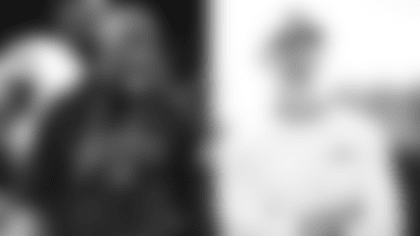Transcript of head coach Eric Mangini's news conference with the New York Jets media Wednesday morning:
Matt Chatham [on the PUP list] will start practicing again today. We've got a 21-day window to decide whether to activate him or not activate him, but he will start the beginning phase of this process.
In terms of the Bengals, this is actually really interesting because I spent a lot of time with Marvin [Lewis] in Baltimore. I was across the hall from him as the offensive assistant when Marvin got his first job as a defensive coordinator in Baltimore. Mike Sheppard at that time was in Baltimore as well with us. He was the receivers coach in Baltimore as well. Ken Zampese interviewed for the offensive coordinator job during that process. I really got to know him and spend a lot of time with him. I really liked him. With Darrin Simmons, Jerry Simmons [Darrin's uncle] and I worked together in Cleveland and Baltimore. I got to know Darrin there. Darrin learned from [Broncos special teams coordinator] Scott O'Brien, who I also learned from. I think [Darrin] is an excellent special teams coach and you can see a lot of those same things that we learned through Scott and the style of play and all those elements and his progression as a coach in the league. So it's nice to work against guys like this who I know so well and respect so much. It's like working against Romeo [Crennel] or any of those situations.
I think offensively when you look at this team it's explosive. It's explosive in terms of the quarterback [Carson Palmer], his ability to make every throw across the field, whether it's the fade, the comeback, the in-cut, throws under pressure, throws with touch or the throws that he makes into tight coverage. He can do anything in terms of getting the ball to the receivers. He's got an excellent group to get the ball to. You have two guys [Chad Johnson and T.J. Houshmandzadeh] who lead the NFL in terms of total number of catches for a tandem. They're in pretty much every top category in passing throughout the league. They're excellent in the red zone. The amount of explosive plays and plays over 20 yards is extremely high. They're difficult to defend. They create a lot of problems. Complement that with Rudi [Johnson], the running game and things that he can do — I've seen him different times we've played him, how effective he is as a runner and the presence he brings to that — it makes it a difficult group to defend. A lot of different challenges we're going to have to face.
Defensively, [coordinator] Chuck Bresnahan is another guy I worked with. He was the defensive assistant in Cleveland when I was the coaching assistant. He runs a very pressure-oriented defense. They bring it from all over the place. They bring it from the secondary, linebackers, different combinations, different looks, and are very turnover-driven. Since Marvin has been there, they've been one of the top in the NFL in the amount of takeaways they've had. They've had an excellent giveaway/takeaway ratio. They're very successful when they come out on the positive side of the giveaway/takeaway. They create a lot of negative plays in the running game, a lot of pressure on the quarterback, and that's something we're going to have to deal with.
[DE] Justin Smith is a disruptive player, big, strong, high motor. They'll drop him into coverage and he's been effective there. They are able to stunt him inside, one-on-one pass rush, and those elements make it challenging just whether they do rush four players across the front. On teams, since Darrin has been there, they've only given up one return in the five years. I like the approach they have. They were top-10 in kickoff coverage and top-10 in punt coverage last year. It hasn't gone quite the way they wanted it to this year, but you see the progress they're making each week. Each phase presents some different problems that we're working on here today, getting into the scouting report, getting into the game plan and starting the week.
On the marginal difference between winning and losing …
Going back to Marty Schottenheimer's comments, it comes down to a handful of plays every single game, and you don't know which play is going to be the one in that handful of plays. It could be the third or fourth play of the game, it could be right before the end of the game. You don't know where it's going to be. The important thing is the consistency, to be able to be in the moment and to play that play, not get caught up with the next play and not get caught up with the last play because the one that you take off mentally, the one you're not as focused, the one you think this is a chance to catch your breath could be the play that's really the difference in the game. You have to play those things consistently.
On how challenging it is to keep the team focused …
Each year presents different challenges, and sometimes it's injuries, sometimes it's the record — both positively and negatively. You are going to face that just like you're going to face that during the game. Again, that's why focus is such a point of emphasis for us, because you need to be able to deal with anything that comes up, move on from that and do the things that are essential to move forward.
On if the Bengals are a gambling defense …
It's the volume of pressures and the different types of pressures. They've made some nice plays on the ball by hitting the quarterback or getting to him right as he's getting the ball off. Deltha O'Neal, when he was coming out, had excellent ball skills. He's very fluid and has a good sense of where the ball's going to be, those instincts you look for in a corner. You're going to try to keep generating negative plays through the movement and the volume of ways that you attack an offense.
On what he'll emphasize this week in protecting the ball …
We do that every day. Jimmy Raye is great about that. I don't know what the right term is, but at no point does he not focus on having the ball high and tight, the points of pressure on the ball and ball security for the runners. Defensively, throughout the course of the week, you're always working on pulling the ball out and understanding where the pressure points are. Does he protect the tip? If he doesn't, you want to punch down the ball, pop it out. If he's not protecting the back end of the football, you want to come through the back and punch it out that way. So understanding how the carrier is holding the ball.
Then, if you're the guy who's making the tackle, that's what you're focused on. If you're the second guy in, now you want to get the ball out. Those things are trained both ways. Chicago does a really nice job with that in terms of pressuring the football and getting it out as well.
On if his second year as head coach has been harder than he thought it would be …
I didn't really come in with a set of expectations one way or the other. It's very similar to last year. I've actually enjoyed the ability to look back at the things we did over the previous season in all the different phases, draft, free agency, training camp, minicamp and regular season, been able to draw on those experiences and constantly go through the process of trying to improve what we did.
On if there is a step backward after initial success …
It's a lot of what I've talked about to the team, mentioned here and even mentioned after the last press conference of last season. Each year I've been a part of the NFL, the seasons have been unique and there is a volume of change between personnel, coaching staff and opponents. As you move into the next season, it's not always within the context of the last season. It's very different. The problems we face change. It could be injuries. There's just a different set of circumstances that you have to deal with and it is completely unique. You draw on the experiences and try to learn from them. You try to build on the things you did positively, but it's never going to be the same as the previous year.
On if he doubts himself on the way he goes about things …
No, I don't. The important thing is to look at and learn from the things that haven't been successful. I believe in that. I believe in the value of anytime you're not successful at something, if you learn from that, you grow from it. You read things like Michael Jordan talking about how he's taken 26 game-winning shots and missed them. Every one of those game-winning shots he learned from, grew from, and was more prepared the next time to take the same shot.
On if he is touched by the reporters' concern about him losing the locker room …
I'm always touched by the concern in this room. It's great. It's nice to have friends [laughs].
On why Chad Pennington throws fade passes …
The reason the offense throws it is because it's isolated coverage, one-on-one, on the boundary where there's really no chance of help, so you like that matchup. I know against the Giants, he threw the fade to Laveranues Coles over on their sideline that Coles came down with. Then he threw another deeper sideline route that he came down with as well. Those were plays that we got a chance to get a nice chunk of yardage, and it's really a one-on-one isolated matchup on the perimeter. Your progression when you do get those chances for a one-on-one aren't necessarily a lot every single game. So you take some chances there. A lot of times it works out and sometimes it doesn't.
On the fade route not being a high-percentage play …
Well, you look at the fade he threw to Brad Smith the week earlier against the Giants where he came down with it. In one situation you get the touchdown, the other situation you get the interception. You always want the placement of the ball to be only where your receiver can get it. The other key thing for the receiver, and we teach this, is if it doesn't look like you're going to come down with it, you have to do everything possible at that point to make sure it's not intercepted.
You try to simulate that in practice. You'll do fade routes in practice or you'll do the top end of the route to get the receivers thinking, "OK, if I don't have this, it's into the next process of becoming a defensive back." The defensive back is understanding how the receiver is going to play those fades and where the placement is. It's a fundamental route that you work on quite a bit.
On tackling …
We're going to continue to focus on tackling. Tackling is a huge point of emphasis. It's really focusing on fundamentals. The nice thing about the tackling drill is it allows the defensive guys to work on that skill set, but it allows your receivers, your running backs and your tight ends to work on their ability to run with the football. Each time, as you watch the tape, there are so many plays that happen in the same exact scenario. We do the drill from the bottom of the numbers to the sideline.
There's a bunch of plays that came up, even last week where we had a player in that area and the defender was coming from an angle, which is exactly the same drill. We had a player in that area, the defender was coming downhill, the cornerback, that's the head-on one. You see it week in, week out. It ends up being exactly the same place on the field. So having the runners work on that skill as well as the tacklers is important. And we're going to continue to work on blocking, tackling, hand placement — all the core fundamentals.
On if problems in tackling are individual or conceptual ...
Well, on the conceptual level, it would be based on where your help is. So if you're coming down and you have a defender inside of you, then you would take one leverage angle. If it was you and the running back and the next defender was inside the box, your help is coming from the sideline. So it's understanding where your help is and making sure that you're fitting based on where your help is.
On if it is difficult to keep the players focused …
With winning or losing there are challenges. Winning, as we talked about, you have to get through the tendency to gloss over things that need to be fixed. With losing, you have to get over the tendency to overemphasize or overstress things that need to get fixed. That's why it's important for that approach to be one that's the same week in and week out.
On Mike Nugent's missed FG against the Eagles …
Both kickers missed in that direction. The wind was a little bit greater there. [David] Akers is a guy that has historically had ... I can't remember what his numbers were this week, but they're high numbers, especially from that range where he was kicking. Giants Stadium is a tough place to kick and I don't think the snap gave us the best chance in that situation. That one I think is more tough than some of the others, but you look at all of them critically and try to figure out exactly where you need to fix it.
On how badly the Jets need a win …
We're looking to win every single week and that's no different. This game doesn't count for four. This game counts as one, just like last game counted as one. We need to be successful one game at a time. There's no getting any bonus points. It's take care of this week, the preparation leading into the game and the process in order to get the win.



